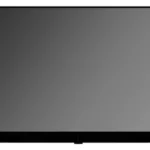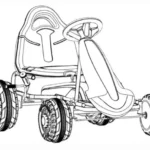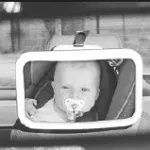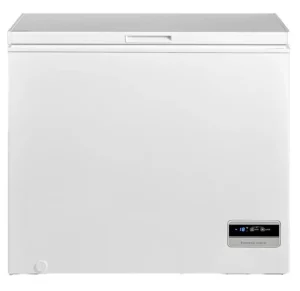
 USER GUIDE
USER GUIDE
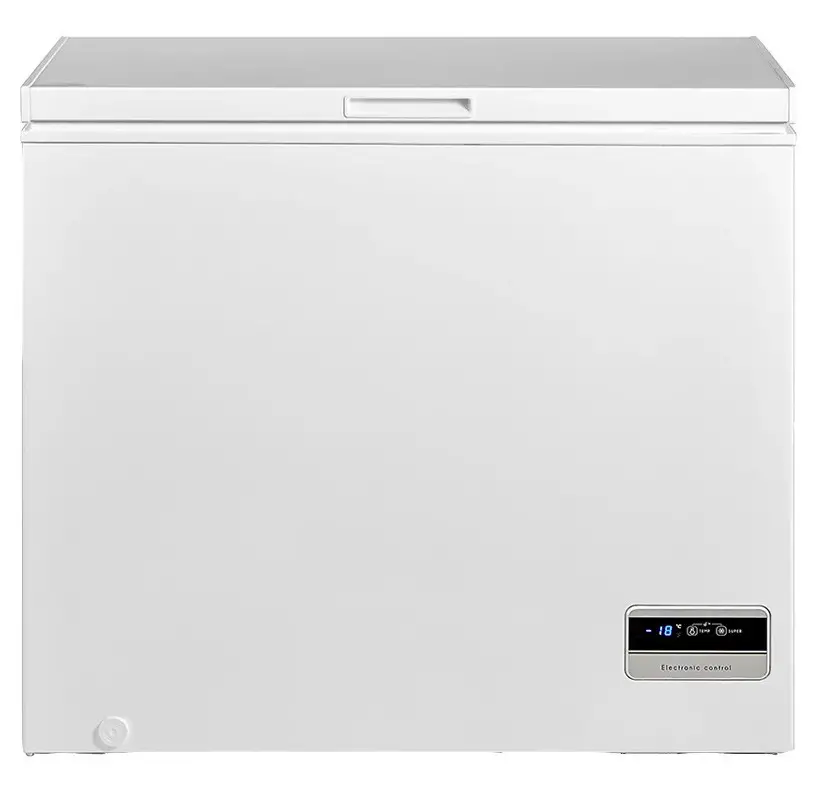
198L CHEST FREEZER
(KAM198CHWZA)
THIS USER GUIDE COVERS THE FOLLOWING MODELS Kogan 198L Chest Freezer – White (KAM198CHWZA)
SAFETY AND WARNINGS
Thank you for buying this Kogan product. Please read all safety instructions before using your fridge or freezer.
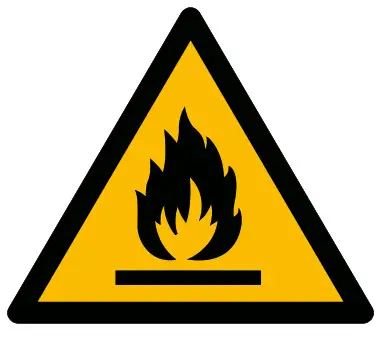 WARNING: RISK OF FIRE / FLAMMABLE MATERIALS WARNING: RISK OF FIRE / FLAMMABLE MATERIALS |
- This appliance is only intended for use within a domestic environment only.
- If the supply cord is damaged, it must be replaced by Kogan.com or an authorized service agent on Kogan.com’s behalf.
- Do not store explosive substances such as aerosol cans with a flammable propellant in this appliance.
- The appliance must be unplugged after use and before carrying out user maintenance on the appliance.
- WARNING: Keep ventilation openings in the appliance enclosure or in the built-in structure clear of obstruction.
- WARNING: Do not use mechanical devices or other means to accelerate the defrosting process, other than those recommended by the manufacturer.
- WARNING: Do not damage the refrigerant circuit.
- WARNING: Do not use electrical appliances inside the food storage compartments of the appliance, unless they are of the type recommended by the manufacturer.
- WARNING: When positioning the appliance, ensure the power cord is not trapped or damaged.
- WARNING: Do not locate multiple portable socket outlets or portable power supplies at the rear of the appliance.
- Do not use extension cords or ungrounded, (two prong( adapters.
- Refrigerant and cyclopentane foaming material used for the appliance are flammable. Therefore, when the appliance is scrapped, it shall be kept away from any fire source and be recovered by a special recovering company with a corresponding qualification other than being disposed of by combustion, so as to prevent damage to the environment or any other harm.
Children:
- This appliance is not intended for use by persons (including children) with reduced physical, sensory or mental capabilities, or lack of experience and knowledge unless they have been given supervision or instruction concerning use of the appliance by a person responsible for their safety.
- Children should be supervised to ensure that they do not play with the appliance.
Unpacking: - During transportation, protective packaging was used to protect the appliance against any damage. After unpacking, please dispose of all elements of packaging in a way that will not cause damage to the environment.
- CAUTION: During unpacking, the packaging materials (polythene bags, polystyrene
pieces, etc.) should be kept out of reach of children.
SAFETY AND WARNINGS (cont’d)
Disposing:
- Old appliances should not simply be disposed of with normal household waste but should be delivered to a collection and recycling center for electric and electronic equipment. A symbol shown on the product, the instruction manual or the packaging shows that it is suitable for recycling.
- Materials used inside the appliance are recyclable and are labeled with information concerning this. By recycling materials or other parts from used devices, you are making a significant contribution to the protection of our environment.
- Risk of child entrapment. Before you throw away your old refrigerator or freezer:
- Take off the doors.
- Leave the shelves in place so that children may not easily climb inside.
- Information on appropriate disposal centers for used devices can be provided by your local authority.
PRODUCT OVERVIEW
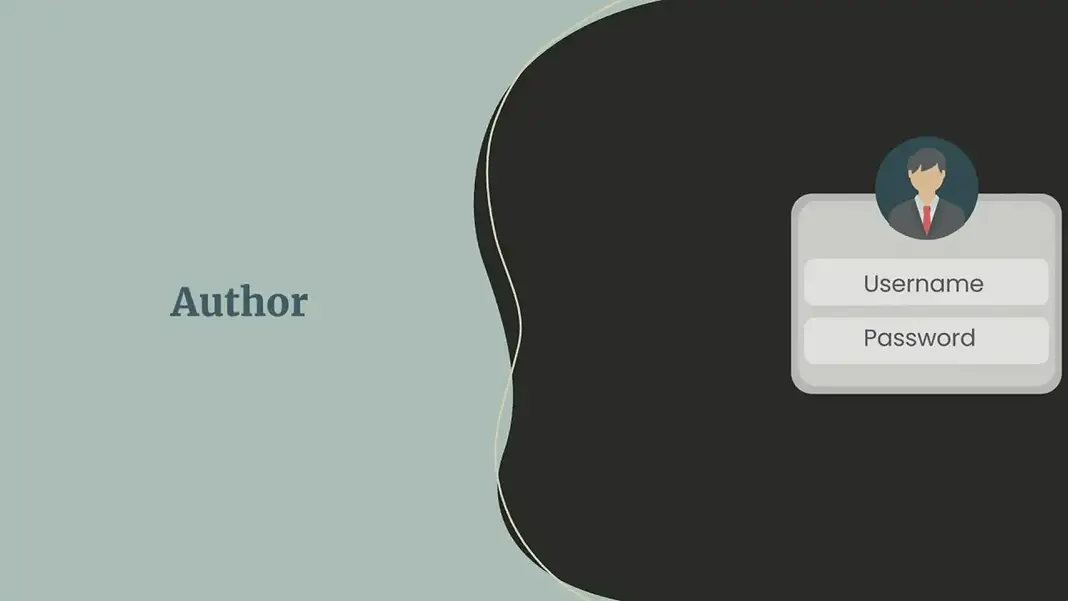
INSTALLATION / FIRST TIME USE
- Before using the freezer, remove all packaging materials, including bottom cushions and foam pads and tapes inside the freezer, tear off the protective film on the door and the freezer body.
- Keep away from heat and avoid direct sunlight. Do not place the freezer in moist or watery places to prevent rust or reduction of insulating effect.
- The freezer should be placed in a well-ventilated indoor place; the ground shall be flat and sturdy.
- The top space of the freezer shall be greater than 70cm and the distances from both sides and backside shall be more than 20cm to facilitate heat dissipation.
SELECTING A SUITABLE LOCATION
When selecting a position for your unit, ensure the floor is flat and firm, and the room is well ventilated. Avoid placing your unit near a heat source (ie, oven, radiator, or hot water system). Avoid direct sunlight as it may increase electrical consumption. Extreme cold temperatures may also cause the unit to not perform correctly. This unit is not designed for use in a garage or outdoors. Do not drape the unit with any covering.
POWER SOURCE AND GROUNDING
It’s recommended to use the vertical freezer on its own dedicated power outlet for both convenience and safety. The power outlet must be grounded.
Important! If the supply cord is damaged, it must be replaced by Kogan.com or an authorized service agent on Kogan.com’s behalf. Cease use and ensure the appliance is completely disconnected from the power supply.
Cleaning before use
Wipe the inside of the unit with a weak solution of bicarbonate soda, then rinse with warm water using a wrung-out cloth or sponge. Wash the shelves and drawers in warm soapy water and dry completely before replacing in the unit. Clean the exterior of the unit with a damp cloth. Further cleaning instructions can be found on page 8.
Before first use
Allow the freezer to sit for half an hour before connecting to power when it is first started. The freezer shall run for 2 to 3 hours before loading fresh or frozen foods; the freezer shall run for more than 4 hours in summer in advance considering that the ambient temperature is high.
Energy-saving tips
- The appliance should be located in the coolest area of the room, away from heat-producing appliances or heating ducts and out of direct sunlight.
- Let hot foods cool to room temperature before placing in the appliance. Overloading the appliance forces the compressor to run longer. Foods that freeze too slowly may lose quality or spoil.
- Be sure to wrap foods properly and wipe containers dry before placing them in the appliance. This cuts down on frost build-up inside the appliance.
- The appliance storage bin should not be lined with aluminum foil, wax paper or paper toweling. Liners interfere with cold air circulation, making the appliance less efficient.
- Organize and label food to reduce door openings and extended searches. Remove as many items as needed at once and close the door as soon as possible.
OPERATION
Display control
When powering on the freezer, the display window will light fully for 3 seconds, then it enters into the normal display, the default set temperature is -18°C. If no errors happen, the display panel shows set temperature or mode, if it has an error, the error code will be displayed on the control panel.
Locking and unlocking
- Locking: Long press temperature adjusting key
 and quick freeze key for
and quick freeze key for  3s at the same time, it enters into lock status and display window flashes for several seconds, then enters into normal display state.
3s at the same time, it enters into lock status and display window flashes for several seconds, then enters into normal display state. - Unlocking: Long press temperature adjusting key
 and quick freeze key
and quick freeze key  3s at the same time, it exits lock status and temperature can be adjusted.
3s at the same time, it exits lock status and temperature can be adjusted.
The following key operations shall be conducted under the unlocking state. If the operation is conducted under a locking state, the display quickly flashes for 3s as a tip of invalid operation.
Conversion of Fahrenheit and Celsius
Under unlocking state, Fahrenheit and Celsius shall be converted through long-pressing temperature adjusting key for 3s.
Temperature setting
In the mode of the freezer, press the temperature adjusting key to change the set temperature, the set temperature will drop by 1°C/°F for each press. When the display panel shows -24°C/-11°F, pressing the temperature adjusting key again will convert the freezer into the refrigerator and the display panel will show 1°C/34°F. In the mode of the refrigerator, the set temperature will increase by 1°C for each press of the adjusting key .
Temperature adjustment mode in Centigrade is as follows:
Temperature adjustment in Fahrenheit is as follows:
Quick freeze mode
- Press the quick freeze key to enter quick freeze mode; the indicator light will confirm the selection.
- To exit quick freeze mode, press the quick freeze key once more.
- When the continuous running time reaches 24h under quick freeze mode; quick freeze mode will automatically exit.
- If set to Celsius, “-24” will appear in the display screen and the compressor will continuously run. With Fahrenheit, “-11” will appear in the display screen and the compressor will continuously run.
High-temperature alarm
- The alarm indicator light will occur if the freezer reaches high temperature.
Power-off memory
- In case of power failure, the previous settings will be memorized til power on.
Fault indication
- The following warning appearing on the display window indicates a corresponding fault in the freezer. Though the freezer may still function with the following fault, the User shall contact a maintenance specialist for maintenance, so as to ensure the normal use of the freezer.
| Code | Description |
| E2 | Failure of temperature sensor |
CLEANING AND MAINTENANCE
WARNING! To avoid an electric shock, always unplug your freezer before cleaning.
Defrosting
- For the most efficient operation and minimum energy consumption, defrost the freezer when the frost on the freezer walls is excessive or 5mm thick. To minimize disruption, choose a time when the stock of frozen food is low.
- Important! Do not use boiling water because it may damage the plastic parts. In addition, never use a sharp or metallic instrument to remove frost as it may damage the cooling coils and will void the warranty. We recommend using the plastic scraper.
- Remove the frozen food from the freezer and place it in a cooler to protect the food.
- Unplug the freezer. The Power Supply light should be off (green light out).
- During defrosting, the ice melts in the cabinet and drains out through the bottom front.
- Place a shallow pan outside the front base to capture the defrost water. Check the pan occasionally so the water does not overflow.
- Clean the interior of the freezer and wipe any residual ice or water from the cabinet.
- Reset the thermostat to the desired setting.
- Switch on the temperature control to the highest setting for two hours before using, and then adjust to the normal level.
- Return food to the freezer.
| TIP
Defrosting usually takes a few hours. Leaving the door open will help speed the process. |
Cleaning the inner cabinet
- Caution: Before using any cleaning products, please read and follow the manufacturer’s instructions and warnings to avoid any damage to your Freezer or personal injury.
- Upon installation of your new appliance, it is recommended that it be cleaned thoroughly.
- Wash the inside with a damp warm cloth containing water and baking soda solution. The solution should be about 2 tablespoons of baking soda to 2L of water.
- Wash the storage basket with a mild detergent solution.
- Be sure to keep the door seal clean to keep the unit running efficiently.
- The outside of the freezer should be cleaned with mild detergent and warm water.
- Dry the interior and exterior with a soft cloth.
- The condenser coils should be carefully vacuumed when they are dusty or dirty.
- It is recommended that the unit be cleaned each time it is defrosted to help keep the unit odor-free and running efficiently.
- Clean your door gasket seals every 3 months using the same warm water solution described above.
Stop using
- Power failure: Foods can be preserved for a couple of hours even in summer in case of power failure; it is recommended to reduce the frequency of opening doors and do not put fresh foods into the freezer.
- Long-time non-use: Please unplug the freezer if left unused for a long time for cleaning. Keep the door open to avoid the bad odor.
- Moving: Do not turn upside or vibrate the freezer, the carrying angle cannot be greater than 45°C. Do not hold the door and hinge when moving this unit.
| CAUTION Continuous operation is recommended when the freezer is started. For best performance, do not stop the freezer under normal circumstances so as not to affect the freezer’s service life. |
BASIC TROUBLESHOOTING
Freezer isn’t operating
- Check that the freezer is plugged in and connected to power.
- Low voltage.
- Ensure the temperature control knob is set correctly.
- Check that a fuse hasn’t blown or circuit tripped.
Freezer is making strange odor
- Odourous foods should be closely wrapped and sealed in containers.
- Check for any possibly rotten food.
- Ensure that the interior is clean. Refer to cleaning instructions.
Freezer compressor is continuously running
- It is normal for the freezer compressor to operate for longer periods of time when the ambient temperature is higher (ie. Summer).
- Do not put too much food in the freezer at one time.
- Do not put warm/hot foods into the freezer.
- Try to minimize the frequency of the door opening.
The freezer door cannot be properly closed
- Ensure that food isn’t preventing the door from closing.
- Ensure that the freezer is completely level and feet adjusted to touch the floor.
- Ensure the freezer door gaskets/seals are clean.
Loud noises
- Ensure the floor is flat and the placement of the freezer is stable.
- Check that the freezer accessories are properly placed.
Buzzing during operation
- Refrigerants circulating in the refrigerant lines will produce an eruption of sound and a grunt, which is normal and does not affect the cooling effect.
- Buzz will be generated by running the compressor specially when starting up or shutting down.
- The solenoid valve or electric switch valve will clatter which is a normal phenomenon and does not affect the operation.
Transient difficulty in door opening
- After refrigeration, there will be a pressure difference between the inside and outside of the freezer that results in transient difficulty in the door opening. This is a normal physical phenomenon.
Condensation of freezer enclosure
- Condensation phenomenon will be detected on the exterior surface and door seals of the freezer when the ambient humidity is high, this is a normal phenomenon and the condensation can be wiped away with a dry towel.
- The freezer enclosure may emit heat during operation especially in summer, this is caused by the radiation of the condenser and it is a normal phenomenon.
For our full FAQ and troubleshooting guide, head online to help.kogan.com
SPECIFICATIONS
Capacity
Volume 198L
Dimensions
Dimensions :(W x D x H): 945 x 525 x 855mm
Packaged Dimensions: (W x D x H): 985 x 545 x 870mm
Weight: 35.7kg
Electrical
Refrigerant R600a, 56g
Hardware
Compressor Type: HDL125A
Power
Current: 0.45A
Energy Consumption: 219kWh per year
Energy Rating: 3.5 Star
Rated Power: 105W
Voltage; 220-240V/50Hz
Note:
- Design and specifications are subject to change without notice.
- Weight and dimension shown are approximate.
Need more information?
We hope that this user guide has given you the assistance needed for a simple setup.
For the most up-to-date guide for your product, as well as any additional assistance you may require, head online at help.kogan.com
